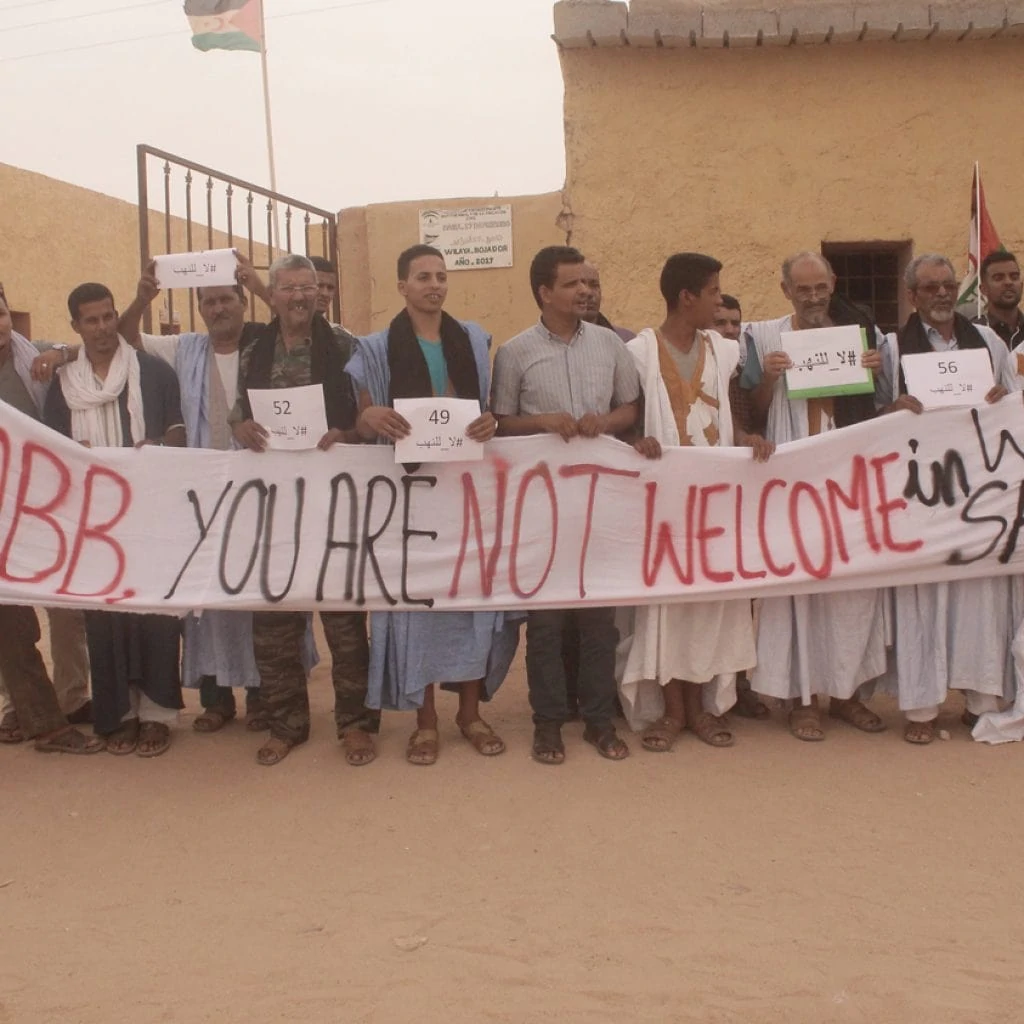Vociferous demonstrators are gathering in Western Sahara to protest against the two Swiss companies ABB and LafargeHolcim. From the point of view of the local Sahrawi people, the companies are violating international law because they are doing business in the occupied part of Western Sahara. Western Sahara has been occupied by Morocco for 43 years.
"ABB you are not welcome in Western Sahara" is written in large letters on the banner that the Sahrauis hold up next to their flag. Loudly they express their displeasure. With good reason. Because their homeland has been occupied by Morocco since 1975, many Sahrauis have to live in Algerian refugee camps. A state of affairs that the two Swiss companies are cementing with their business in Western Sahara.
As long as the economic interest of the occupying forces in Western Sahara remains intact, a solution to the conflict cannot be considered. The Moroccan royal family is directly involved in the activities of LafargeHolcim, which owns half of the subsidiary company - LafargeHolcim Maroc. In 2016 the company built a cargo port from which the phosphate of the state-owned Moroccan mining company is shipped. Phosphate is an important source of income for Morocco, which also helps to finance the crew.
Morocco is mining the conflict mineral in the occupied territory, in violation of international law. According to the UN, the Sahrauis must benefit directly from the use of the resource and must agree to its exploitation. A provision that Switzerland also supports. Neither is actually the case. LafargeHolcim, for example, supports the violation of international law with its commitment. "The Swiss are known as a just people. They should not make use of Saharawi resources", says a demonstrator into the microphone. It is questionable how long Switzerland will continue to have this reputation here. In addition to LafargeHolcim, ABB is also involved in the Western Sahara.
Morocco is building larger wind farms in the Western Sahara, among other things with components from Switzerland. The Zurich-based energy technology producer has already delivered one component to Western Sahara and more could follow. This is another source of conflict, because with every new infrastructure project in the area, Moroccans migrate to the occupied territory as settlers. Possibly as future voters, if the referendum actually takes place in 1991. It will enable the Sahrawis to decide on their self-determination.
However, the vote has been delayed since its decision 27 years ago. Morocco wants to let its settlers have a say in what the Sahrauis agree with, but only to a limited extent. So anyone who helps build infrastructure projects in Western Sahara encourages the influx of settlers and thus the conflict. Africa's last colony remains.


